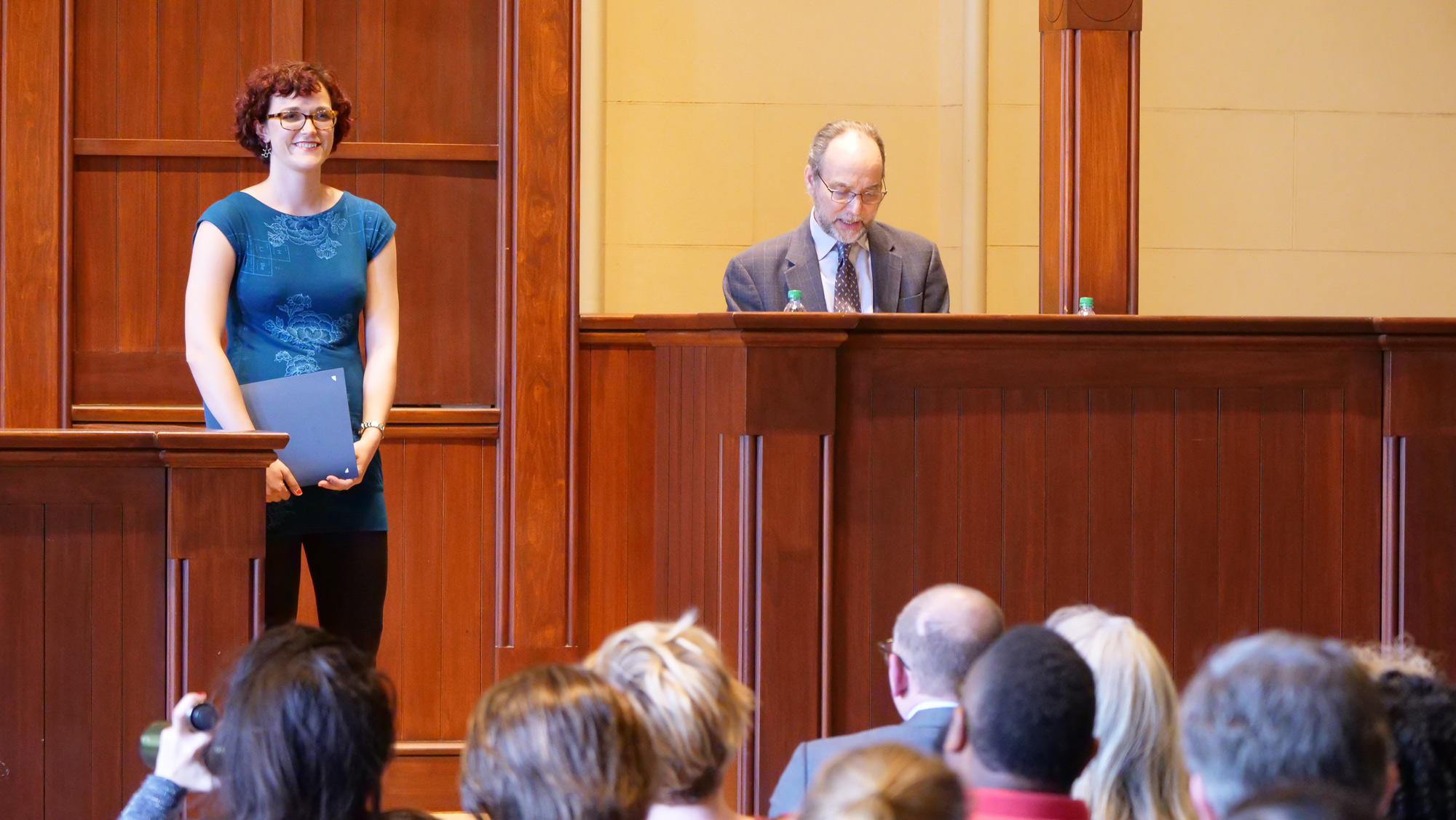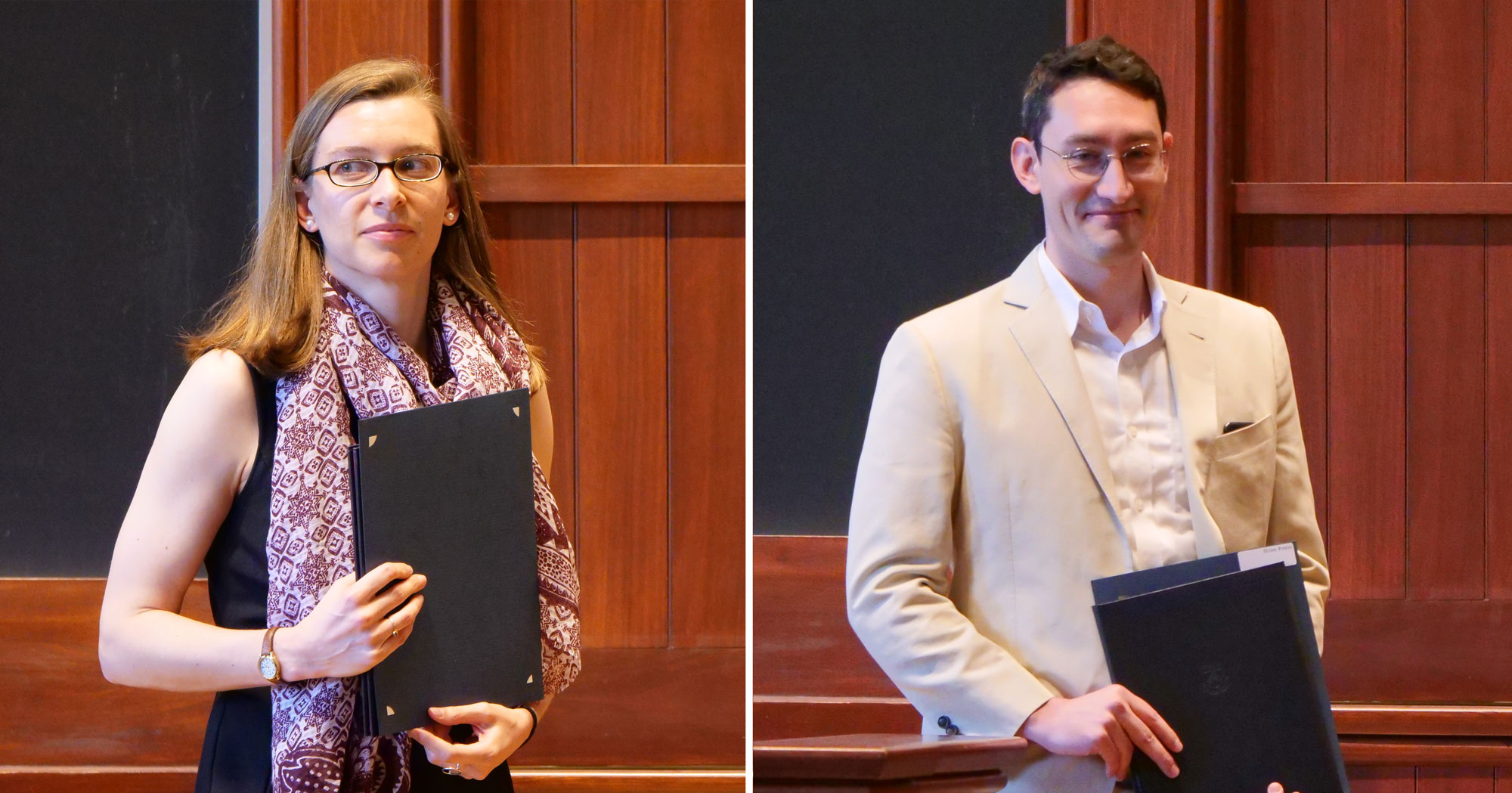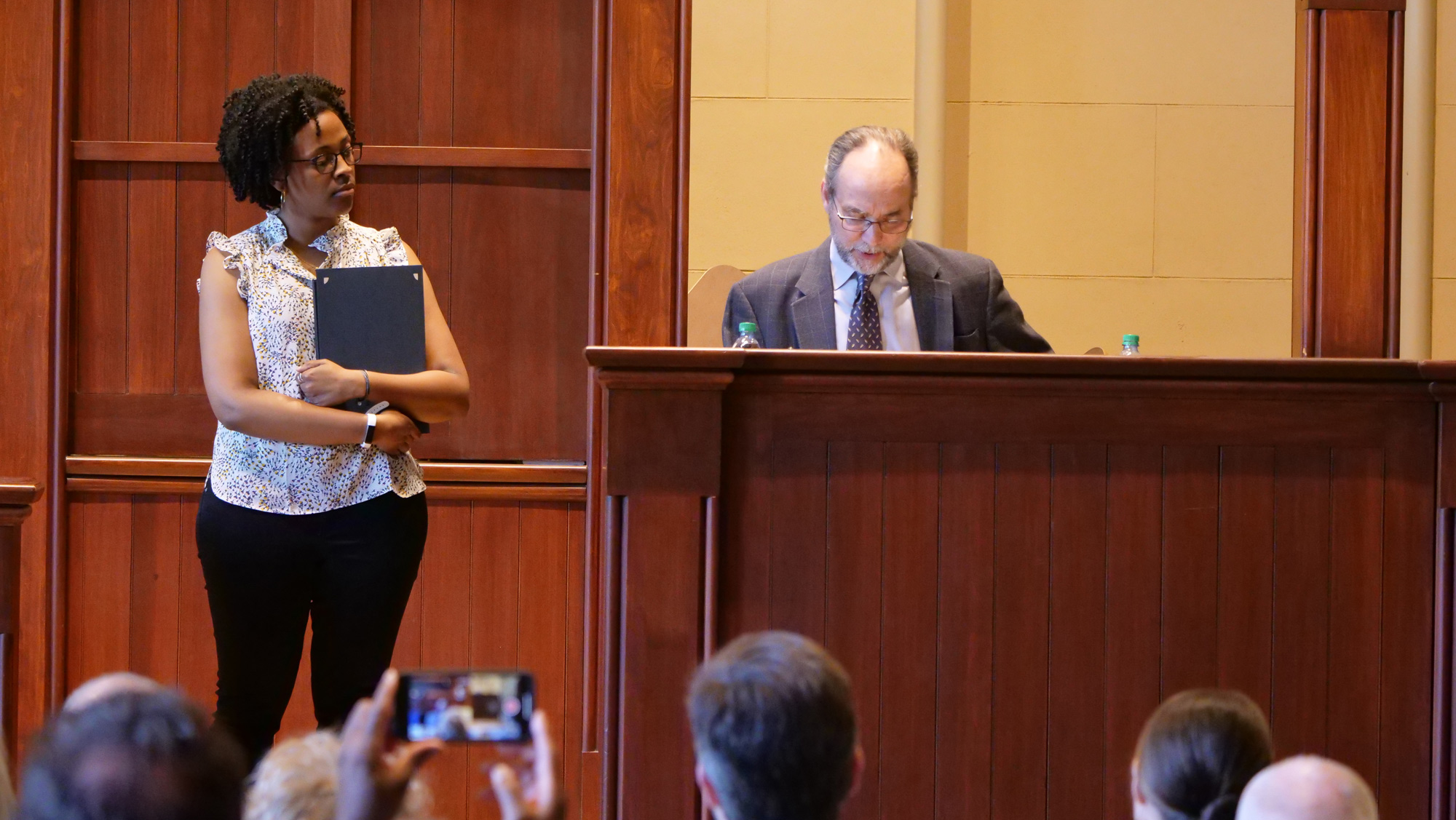How to Get a 19-Year-Old to Pay Attention
We talked to some of our best graduate student teachers to learn how—and why—they excel.
How do you learn to teach? Graduate students at Penn Arts & Sciences are charged not only with learning their fields and doing research, but sharing their knowledge with undergraduates. As teaching assistants (TAs) working with faculty members, and by creating their own courses, they hone their skills in the living lab of the classroom.
Every year Penn Arts & Sciences honors its best graduate student teachers. We talked to four of this year’s award recipients about how they approach teaching, and what it means to them to be a good teacher.
The First Time
“It was nerve-wracking because I thought, okay, I really have to nail this introduction. I have to get them excited about chemistry,” says chemistry doctoral candidate Phoebe Askelson about the first time she taught. “But I was also just really excited. Telling people, hey, here’s some basic info about this thing that I love, maybe you can enjoy it too.”
“My best teachers were the ones who were really passionate about the subjects,” says Brian Reese, who earned his Ph.D. in philosophy in July and is now at the University of Nebraska. “That enthusiasm was infectious. So I just try to share my genuine interest in and love for the topic.”
Beyond love of the subject, of course, are nitty-gritty pedagogical issues. The School prepares its teaching assistants with a seminar, and the Center for Teaching and Learning (CTL) holds workshops throughout the year. Grad students learn tricks of the trade (for example, groups that are tested more frequently remember more of the material a year or two later). Professors work closely with their TAs, who learn from each other as well. “It’s a classic apprenticeship in a certain way,” says Reese.
Many of the teaching award winners have also been fellows at the CTL, where they lead their own workshops, observe others as they teach, and talk to graduate students from all departments. “The idea was to have people think about how they want to teach, how they want to come across to the students, implement that, and then take a step back to reflect on how that went and grow from it,” says Askelson.
In the Classroom
Meghan Garrity, a doctoral candidate in political science, spent almost 10 years in humanitarian aid and development. Working as a trainer during that time has helped her, as has feedback from her students, which has made her push herself to identify a different area of her teaching to work on each semester. “I think the teaching component is really crucial,” she says, “especially at this level where the students are trying to decide what to do and craft their world views.”
Each grad student develops multiple approaches, based on the subject, course, and students, and his or her own style. “I think, if I were approaching this set of questions for the first time, how would I want it explained to me?” says Reese. When he was an undergraduate, he was struck by Plato’s relevance. He designed the course Democracy and the Power of Rhetoric to engage Plato’s concerns about rhetoric and demagoguery, including a mock trial of Socrates. “It’s a kind of mirror through which to assess our own way of thinking—to see that it has something to say to us and to our own time.”
“Brian took our brains on a journey,” says one of his students. “Questions were raised, some were answered and some were not, [but] he made me comfortable with uncertainty, [and] even see a degree of beauty in it.”
Dana Cypress comes from a family of teachers and was teaching Sunday school at 13. When the Ph.D. candidate in English created a junior research seminar on how Black writers represent Hurricane Katrina, she included the graphic novel Dark Rain. The students were a little skeptical of the “comic book” at first. “You have students come in with the notion this is easy and elementary, and to see them begin to revise their opinion—that’s the best moment in a classroom,” she says. She tries to take that excitement and apply it to her writing: “How can I get people to look at something and then look again, and experience that joy of revision?
“Teaching for me is the lifeblood of the profession,” she says. “I can’t really imagine doing some of the research I’m doing without having taught some of the material.”
Teaching Goals
Garrity can give examples in political science classes based on her time in the Middle East. Along with fostering critical thinking and analysis skills, her teaching goals include connecting theory to the practical and “trying to complicate standard narrative that comes out of the West.” One of her supervising professors wrote, “Meghan repeatedly went above and beyond my expectations in finding ways to make the material accessible and digestible for students who came with different backgrounds and expectations.”
Garrity also uses the first few minutes of each class to chat and draw out the students, letting them learn from each other and building networks between them. “You have a whole range—juniors, seniors, first-years, and sophomores—and the older students, especially, have so many experiences to share, about study abroad or clubs they’re in.”
Cypress also takes advantage of the variety of students in the room, saying, “There’s a wealth of knowledge and resources in the room just by virtue of them being there.” One of her students wrote that Cypress is “an instructor that makes students feel like their ideas matter, one that understands learning as a communal and empathetic practice.”
Askelson knows that some are taking her chemistry classes just to fulfil a requirement. “I think the coolest thing about teaching an intro class is that people come in with different backgrounds and you have to figure out how to get them to the same level of understanding. I want them to learn the chemistry, but also to have a positive experience taking this class,” she says. One student wrote about Askelson’s teaching, “My self-confidence and motivation were quick to fall after the first mid-term…[but] surprisingly, Phoebe’s recitations every Friday were classes I started looking forward to.”
“It’s a responsibility to make sure that people want to study science because if people stop studying it, you stop getting researchers,” says Askelson. Whatever the students’ future studies, she wants them to be scientifically literate. “We got this education, we get to do this research, and we have the responsibility to be able to communicate it to other people.”





